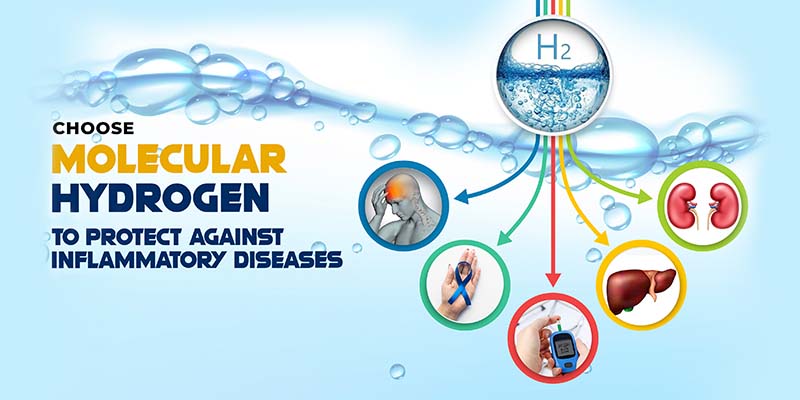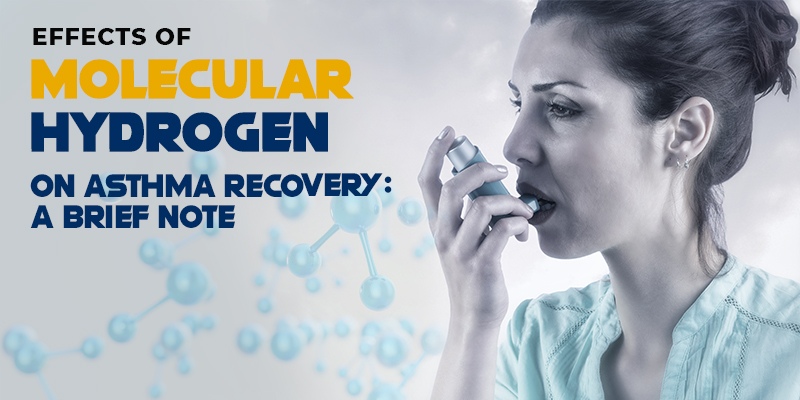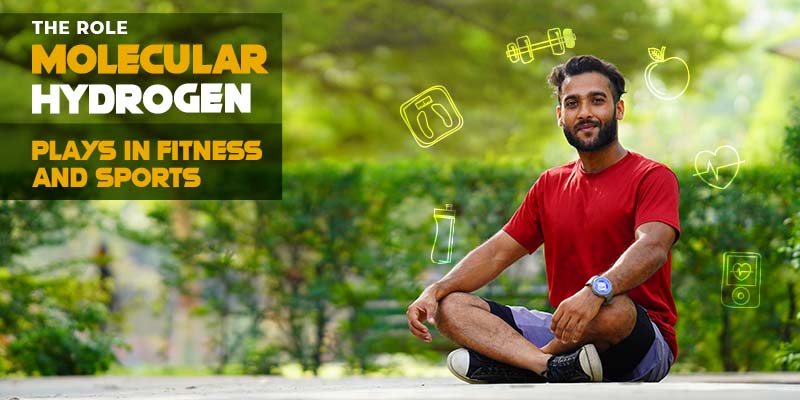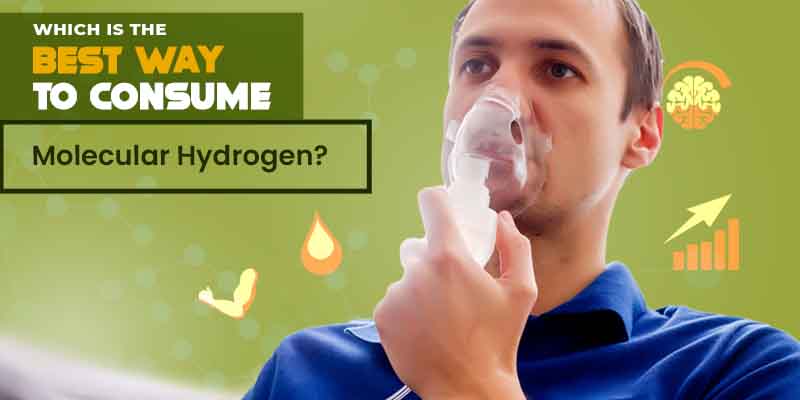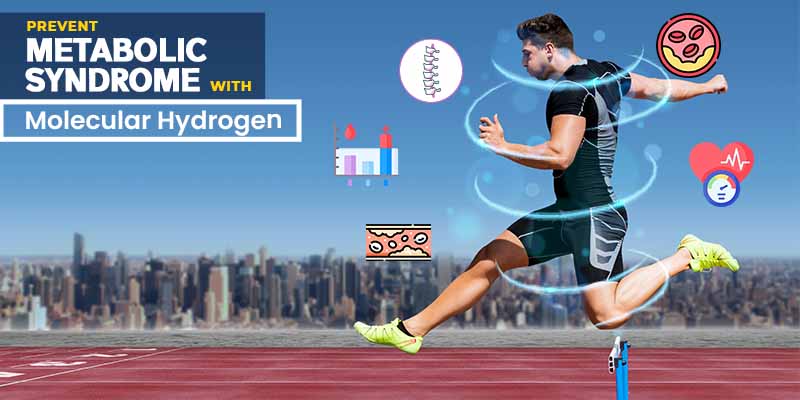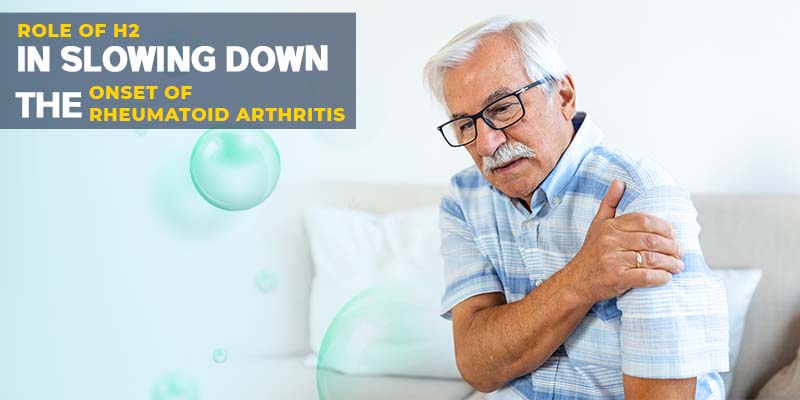Rheumatoid arthritis is known to affect 1% of the entire global population, affecting females more than males. This autoimmune disease occurs in people between 30-55 years of age and is characterised by irreversible joint damage and destruction to bone and cartilage. [1]
While rheumatoid arthritis is very painful, if the disease progresses, it can increase a person’s risk for atherosclerosis (buildup of plaque in the arteries), which goes on to cause cardiovascular diseases. Atherosclerosis progresses very quickly if a person has rheumatoid arthritis, even in the absence of other conventional risk factors such as obesity, diabetes mellitus, hypertension, etc. [1]
In recent times, molecular hydrogen has been used as a therapy for rheumatoid arthritis as it slows down and combats oxidative stress, a major causal factor of rheumatoid arthritis. In animal models, cartilage damage due to rheumatoid arthritis was shown to reduce because of antioxidants (molecular hydrogen) and antioxidative enzymes. [2]
One of the most popular antioxidants is molecular hydrogen. It is produced for consumption by a hydrogen generator kit and can be consumed easily to slow down the progression of rheumatoid arthritis. In this blog, you can check out the details of how molecular hydrogen can be used as a therapeutic agent for rheumatoid arthritis.
Understanding Rheumatoid Arthritis
As mentioned above, rheumatoid arthritis is an autoimmune disease. It occurs when the immune system’s cells begin to attack the healthy and normal body tissue. These immune cells cause inflammation in the synovium, which is the inner lining of the joints. making the synovium thicken, creating symptoms like redness, warmth, and pain.
This thickened and inflamed synovium then pushes against the joint and destroys the cartilage and bone. Eventually, the joint structure begins to change causing more pain for the patient.
Rheumatoid arthritis affects people differently. It can affect any joint, and is usually symmetrical in nature, meaning, if you have the condition in the left hand, you may also have it in the right hand.
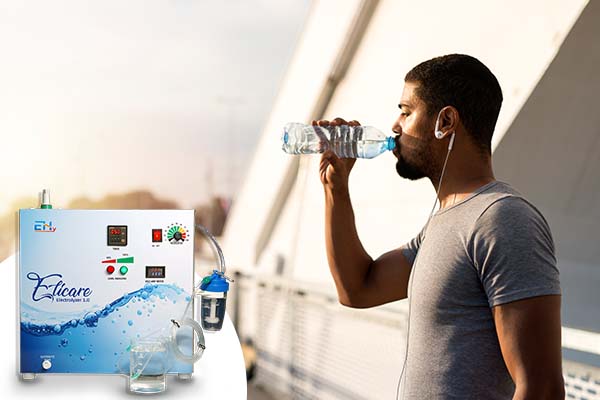
What Is the Cause of Rheumatoid Arthritis?
So far, researchers and doctors do not have any idea why the immune system turns against the joints of the body. Genes, environment factors, and sex hormones could be potential causes of rheumatoid arthritis.
How Does the Consumption of Molecular Hydrogen Help Slow Down the Progress of Rheumatoid Arthritis? [2]
Studies exist [3,4,5] that show molecular hydrogen may play a protective role in the development of rheumatoid arthritis by reducing oxidative stress. A major cause of oxidative stress is the OH- radical which is selectively reduced by the molecular hydrogen. Hydrogen has been shown to reduce the oxidative stress levels hence it can be used as a therapeutic agent in the treatment of rheumatoid arthritis. [2]
Hence, the consumption of molecular hydrogen in the form of inhalation, drinking hydrogen-rich water or taking hydrogen saline can help to slow down the progress of rheumatoid arthritis.
To consume hydrogen water or to take it in via inhalation, you will need a hydrogen generator kit. We are one of the top makers of hydrogen generator kits. Check out the details of the product here.
Essential Features of Eliteck Hydrogen’s Elicare Electrolyzer
Given the benefits of molecular hydrogen, you may be interested in a product that safely produces the gas for consumption. We have just the ANSWER!
Here are some of the more notable features of our electrolyzer.
- It’s a patented product with patent number 201831023702 applied on 26/06/2018.
- We are the original manufacturer and the product is made entirely in India.
- The machine is scientifically tested and has completed Phase II trials.
- It does not store hydrogen so there is no chance of explosion.
- The product follows all safety precautions and measures.
If you have been diagnosed with rheumatoid arthritis, and are looking to consume hydrogen for your overall well-being choose Elicare Electrolyzer.
Conclusion
To sum up, investing in a hydrogen generator kit is very beneficial for those who have been diagnosed with rheumatoid arthritis. Consuming hydrogen rich water or inhalation may cause the progression of rheumatoid arthritis to slow down.
Apart from treatment for rheumatoid arthritis, molecular hydrogen can be used as a protective agent to prevent many inflammatory diseases. Hence, consuming molecular hydrogen is very beneficial for the overall well-being of a person.
Reference Links:
1. https://www.ncbi.nlm.nih.gov/pmc/articles/PMC3788323/
Molecular Hydrogen: New Antioxidant and Anti-inflammatory Therapy for Rheumatoid Arthritis and Related Diseases
Toru Ishibashi
PMCID: PMC3788323 PMID: 23859555 doi: 10.2174/13816128113199990507
2. https://www.ncbi.nlm.nih.gov/pmc/articles/PMC5095341/
Molecular hydrogen decelerates rheumatoid arthritis progression through inhibition of oxidative stress
Jia Meng, Pan Yu, Hui Jiang, Tao Yuan, Naicheng Liu, Jian Tong, Haiyan Chen, Nirong Bao and Jianning Zhao
PMCID: PMC5095341 PMID: 27830032
3. https://pubmed.ncbi.nlm.nih.gov/24929023/
Therapeutic efficacy of infused molecular hydrogen in saline on rheumatoid arthritis: a randomized, double-blind, placebo-controlled pilot study
Toru Ishibashi, Bunpei Sato, Shinji Shibata, Takaaki Sakai, Yuichi Hara, Yuji Naritomi, Samon Koyanagi, Hiroshi Hara, Tetsuhiko Nagao
PMID: 24929023 DOI: 10.1016/j.intimp.2014.06.001
4. https://pubmed.ncbi.nlm.nih.gov/23031079/
Consumption of water containing a high concentration of molecular hydrogen reduces oxidative stress and disease activity in patients with rheumatoid arthritis: an open-label pilot study
Toru Ishibashi, Bunpei Sato, Mariko Rikitake, Tomoki Seo, Ryosuke Kurokawa, Yuichi Hara, Yuji Naritomi, Hiroshi Hara, Tetsuhiko Nagao
PMID: 23031079 PMCID: PMC3563451 DOI: 10.1186/2045-9912-2-27
5. https://pubmed.ncbi.nlm.nih.gov/20388015/
The associations of circulating CD4+CD25high regulatory T cells and TGF-β with disease activity and clinical course in patients with adult-onset Still’s disease
Der-Yuan Chen, Yi-Ming Chen, Hsin-Hua Chen, Chia-Wei Hsieh, Chi-Chen Lin, Joung-Liang Lan
PMID: 20388015 DOI: 10.3109/03008200903461462
